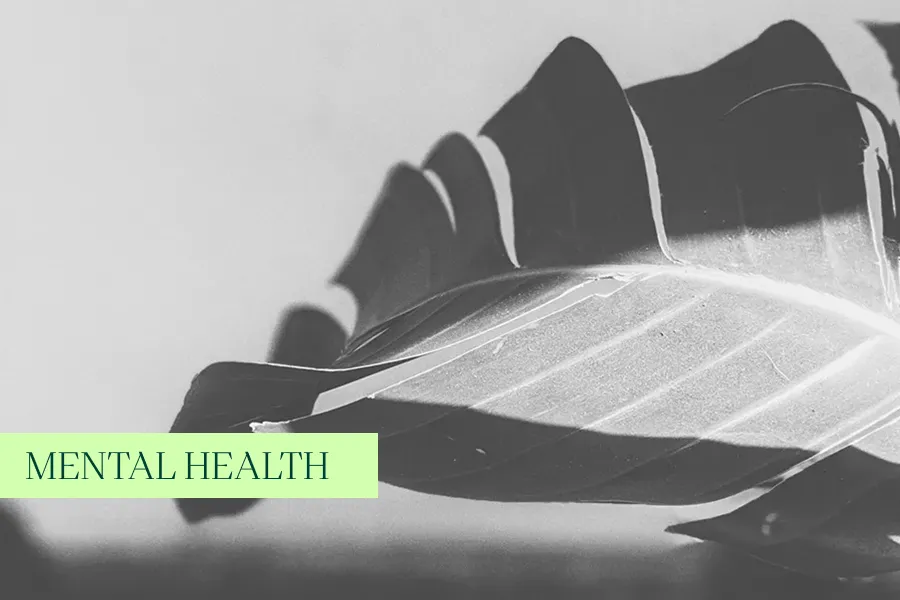According to the Therapeutic Goods Administration (TGA), anxiety is the second most applied chronic health condition for natural therapies medicines.
In this blog, we discuss the prevalence of mental health issues, with a focus on anxiety, depression and post-traumatic stress disorder (PTSD). We also explore the role of the endocannabinoid system (ECS) in these conditions, and focus on the data surrounding the increasing number of patients who are accessing natural therapies to help better manage their mental health.
Mental Health in Focus
The World Health Organisation defines mental health as “a state of mental well-being that enables people to cope with the stresses of life, realise their abilities, learn well and work well, and contribute to their community. It is viewed as an integral component of health and well-being that underpins our individual and collective abilities to make decisions, build relationships and shape the world we live in”.
Mental health conditions are very common, and can significantly impact one’s quality of life.
The impact on us
Mental Health issues do not discriminate, and affect people of all ages, backgrounds, and walks of life. In Australia, the prevalence of these conditions is quite staggering – over two in five (42.9%) people aged 16-85 have experienced a mental health disorder at some time in their life, and one in five (21.4%) have experienced a mental health disorder for longer than 12 months. This helps us understand the need for effective treatments and interventions to help better manage our overall well being.
Understanding Anxiety, Depression and PTSD
Anxiety is a complex emotional state characterised by feelings of unease, apprehension, and worry. It is a normal response to stress or perceived threats, but when it becomes excessive, uncontrollable and persistent, it can develop into an anxiety disorder. It can manifest with physical symptoms, like increased heart rate, muscle tension, nausea, diarrhoea, or restlessness, and cognitive symptoms like racing thoughts and excessive rumination.
Depression is characterised by persistent feelings of sadness, hopelessness, and a loss of interest or pleasure in previously enjoyable activities. It often goes beyond normal fluctuations in mood and can affect a person’s daily life, including their ability to work, socialise and maintain relationships.
Post-traumatic Stress Disorder (PTSD) is a condition that can develop in individuals who have experienced or witnessed a traumatic event. Common symptoms of PTSD include intrusive and distressing memories of the trauma, flashbacks, night terrors, and severe emotional distress when exposed to reminders of the event.

Dysregulation of the Endocannabinoid System
The endocannabinoid system (ECS) is a complex network of receptors, enzymes and endocannabinoids (yes, we naturally produce our own cannabinoids!) in the brain and throughout the body. It plays a crucial role in maintaining homeostasis, or “balance” within the body. It is believed that patients who have chronic health conditions may in fact have a somewhat of a dysregulation or an “imbalance” of their ECS, and this too is applicable for mood disorders like anxiety, depression and PTSD.
The two main cannabinoids (or endocannabinoids), produced by our bodies are called 2-arachidonoylglycerol (2-AG) and Anandamide. Anandamide is often referred to as the “bliss molecule” because it plays a role in promoting feelings of well-being and happiness. Interestingly, the “runners high” you may experience after exercise is now believed to be from a surge in endocannabinoids, specifically anandamide, and not endorphins, as they are unable to cross the blood-brain-barrier.
These two endocannabinoids help to regulate various functions, including mood regulation, stress response, inflammation, and can modulate other neurotransmitters like dopamine, serotonin, glutamate and Gamma-aminobutyric acid (GABA).
When looking at how these two cannabinoids may affect anxiety and depression, one study showed lower levels of 2-AG in patients with major depression, whereas it showed patients with high anxiety scores had lower levels of anandamide.
There is limited research on the role of the ECS in patients with PTSD specifically, however one study showed the effects of trauma on the ECS seem to differ, depending on whether the trauma was experienced in childhood vs adulthood.
Plant-derived cannabinoids (phytocannabinoids) such as delta 9-tetrahydrocannabinol (THC) and cannabidiol (CBD) interact with the endocannabinoid system’s primary receptors CB1 (found primarily in the central nervous system) and CB2 (found primarily in the peripheral immune system) by either mimicking endocannabinoids, or by influencing their production or breakdown. These interactions in turn can have various therapeutic effects.
It is important to note that the relationship between endocannabinoids and mood disorders like anxiety, depression and PTSD is complex and not fully understood. While some studies suggest that enhancing endocannabinoid activity using phytocannabinoids can have positive therapeutic outcomes, there are also concerns about potential side effects and the risk of cannabis use disorder (in particular with THC). Research in this area is ongoing, and the development of safe and effective treatments based on the latest research is critical.
Increase in the number applications for natural therapies to treat mood disorders
The Therapeutic Goods Administration (TGA) tracks all of the applications made by doctors via the Special Access Scheme (SAS-B) for the patients prescribed natural therapies. Since 2020, anxiety has been the second most applied for chronic health condition for natural therapies medicines. In addition, anxiety, depression and PTSD have all been in the top five most applied for conditions for the use of natural therapies, as well as chronic pain and sleep disorders.
This data demonstrates the increased use of natural therapies as a potential treatment option for mood disorders, when other conventional therapies may have not been successful or effective.
CBD or THC for mental health?
CBD is a non-psychoactive cannabinoid and can be associated with its potential therapeutic benefits in helping to manage mental health disorders. Some studies suggest CBD may have anxiolytic and anti-inflammatory effects, and may help in better regulating mood. THC on the other hand, is the psychoactive component of the plant and is responsible for the “high” associated with cannabis use. While THC can have therapeutic effects for some conditions like chronic pain and cancer-related symptoms, its psychoactive nature may contribute to increased anxiety and paranoia in some individuals. Finding a balance between these cannabinoids is crucial in optimising mental health benefits, while aiming to minimise potential unwanted side effects.
It is also important to note that not all mental health issues or mood disorders may be appropriate for natural therapies medicines. Some studies have shown an exacerbation or worsening of symptoms in certain mood disorders (especially with THC-containing medicines), so it is important to be transparent when discussing your medical history with your healthcare professional. If you would like to explore the use of natural therapies further, we recommend having a discussion with your GP, or booking in with the friendly team at Astrid Clinic, who can provide personalised guidance based on your specific condition(s), medical history and needs.
Summary
In summary, the landscape of medicinal cannabis as a treatment for mental health is complex, and research behind the role of cannabinoids in mood disorders is ongoing. It’s important to consult with an experienced healthcare professional if you are considering any form of natural therapies medicine, as the effects can vary greatly depending on the type of therapy, and various individual factors.
If you’re suffering from emotional distress, you can contact a 24 hour crisis support or suicide prevention services in Australia.
24 hours, 7 days
Lifeline: 13 11 14
Suicide Call Back Service: 1300 659 467
Beyond Blue: 1300 224 636
MensLine Australia: 1300 789 978
Kids Helpline: 1800 551 800
13YARN: 13 92 76
For further information see Mental health resources
